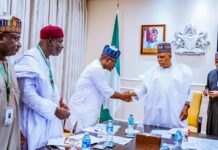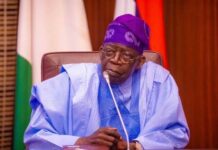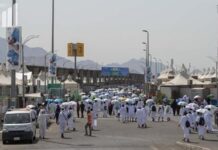By ISHAQ IBRAHIM JAE
Though this is not a theological discourse, I find a quote attributed to Caliph Umar a good way to start this piece. To paraphrase the Second Caliph, he said that the gains of Islam in reforming the Arabs for the better could be gradually reversed with the emergence of those who didn’t experience the days of ignorance.
The recent drive to amend some provisions of the National Hajj Commission of Nigeria (NAHCON) Act by the National Assembly is a cause for concern for those who privy to the developments in the Hajj and Umrah industry in Nigeria especially as it relates to the role of the Hajj Managers at the Federal level. While I believe the NAHCON (Establishment) Act, 2006 is due for review in view of current realities and some changes that have occurred on the global level, the reasons advanced for the proposed amendments and their content can at best be described as ill-advised and based on misinformation on the part of the sponsors. For this piece, I will focus only on one aspect of the proposed amendments – the Hajj Savings Scheme.
In October 1991, a Counsellor in the office of the Minister of State, Foreign Affairs (HMOSFA) undertook an official visit to Malaysia and to Tabung Haji in particular. He submitted a memo to the HMOSFA in which he said: “.. It is common knowledge that the organization and conduct of the Malaysian pilgrims over the years have been among the best all over the world, It is for that reason, that I humbly wish to recommend that we borrow a leaf from their giant strides..” One of these ‘giant strides happened to be the Hajj Savings Scheme which he went on to describe thus: “.. What the Scheme does in effect, is to gather funds from interested investors (not necessarily and exclusively pilgrims) and deposit them for high returns in the industry, commerce and plantations as well as in real estate, according to Islamic principles. The proceeds therefrom would be judiciously utilized in providing the best services to Malaysian pilgrims throughout the performance of Hajj.” The Counsellor then recommended that the delegation be dispatched to understudy to this Malaysian initiative.
It wasn’t until June, 2005 that President Obasanjo dispatched a delegation to understudy the Hajj arrangements in Malaysia and Indonesia. The delegation which was led by the then Deputy Senate President, Late Senator (Dr.) Ibrahim Nasiru Mantu, comprised of the HMOSFA, Chairman National Committee on Hajj and the head of the Pilgrims Affairs Directorate. At the end of the trip, Senator Mantu submitted a report to the President in which he stated; “ … in order to ameliorate the effects of the ever increasing cost of performing Hajj by Nigerians, we strongly recommend that a National Hajj Savings Scheme be established within the auspices of the proposed Independent Hajj Affairs Agency. Such a Scheme would not only allow intending pilgrims commence saving early, but would also assure orderliness, certainty and stability in planning..”
Read Also: Offshore Assignments: NAHCON screens service providers for Hajj in July
What is clear from the reports above which are almost 14 years apart is that the Hajj Savings Scheme being contemplated is that which will aggregate and invest Hajj funds in such a manner that will yield proceeds which will further be utilized to subsidize the cost of performing Hajj. This is in addition to affording the Nigerian Hajj authorities the opportunity to plan well in advance for the Hajj.
When NAHCON Act was signed into law in October 2006, it provided for the establishment of the Hajj Savings Scheme (HSS) in Section 7. A Technical Committee was constituted in the year 2009 to propose modalities for the Scheme which consulted widely and agreed that the best way to establish such scheme was by having a Special Purpose Vehicle (SPV) that would professionally drive the scheme and this required a license from the Central Bank of Nigeria (CBN). The CBN was formally approached for a license for the SPV in 2017, but it responded that “ We regret to decline the request but advise that you leverage on the extant CBN Guidelines for the Regulation and Supervision of Non-Interest Banks and Non-Interest Micro Finance Banks to encourage investors to either float a Non-Interest Microfinance (Islamic) Bank or a full-fledge Non-Interest Bank to Operate the Scheme.”
It was for this reason that a member of the Technical Committee on the HSS advised NAHCON “..to collaborate with Jaiz Bank on the Interim pending when CBN license is obtained.” At that point, only Jaiz Bank existed as a fully-fledged Non-Interest Bank.

These and many more are what informed the 4th Board of NAHCON to expedite action on the HSS and launch it on in September, 2020. Today, less than two years down the line, the Scheme has a total of 12,945 subscribers with 4.4 Billion in deposits that have yielded 79.8 Million Naira in profits. Clearly, the Scheme is on the trajectory envisaged by its founders. In a country of over 100 Million Muslims, the HSS is one sure vehicle that will drive economic empowerment and widen financial inclusion. This fact was alluded to by the Counsellor mentioned earlier in this article who mentioned in October 1991 that the HSS “.. could be viewed as an economic scheme in the context of national development..”. This position has been supported by numerous research papers and advocated by industry experts too numerous to mention here.
Unlike the previous system of pilgrims funds collection where monies collected are kept in commercial banks to generate interest for the Pilgrims Board’s only to the exclusion of the pilgrim, the HSS is a Shariah-compliant funds collection and deposit system that ensures funds collected are invested in Shariah compliant investments and the proceeds therefrom, are shared with the pilgrims as the investors (arbabul Maal) on the one hand and Jaiz, NAHCON and SMPWB’s on the other hand as workers (mudaarib). Similarly, HSS funds are not domiciled in a single account controlled by the Commission as many think and therefore insinuate that NAHCON uses the funds for its operations. All funds are in the individual accounts of the respective pilgrims where neither NAHCON or SMPWB’s have access to. The proposal to move HSS funds to the CBN completely negates the purposes for which the funds were aggregated in the first place – Growth of funds through investment in Shariah-Compliant investments.
In my opinion, one of the modification that need to be made in the NAHCON Act is to remove the operation of HSS from any Government agency (NAHCON or SMPWBs) and place funds management with professionals (Banks, Investment Firms) that have the capacity to grow funds. Government is NOT a good ‘businessman’ and as such should leave funds management to professionals.
It is also my opinion that the proposed amendments as submitted are not in the interest of pilgrims or the Ummah in general and should therefore be discarded in their entirety. The leadership of the Nigerian Muslim Ummah should organize an all-inclusive review team which should consist all stakeholders in Hajj and Umrah led by the original architects of the NAHCON Act to review it and propose a holistic amendment that will be in the interest of the pilgrim and the Muslim Ummah.























